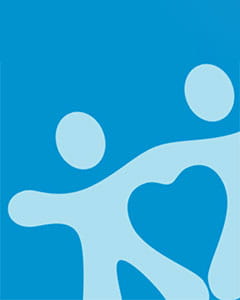How to empower your teen to find reliable health information online
Written by Anne Rosebrock, Library Services Team
Teens are pretty tech-savvy regarding electronic gadgets and social media, but how adept are they at finding accurate and reliable health information online? A recent national survey documenting how teens use the Internet for health information provides some insight.
How our teens get their health information
The good news is that more than half of the teens surveyed (55%) rated parents as the source for “a lot” of health information. However, about 84% of teens have searched online for health information, and unfortunately when searching on the Internet, they tend primarily to use Google as a search engine and check the first few links that pop up.Teens may be even more aware than parents that anyone can post information on the web. You can find everything from expert opinions by experienced physicians in a medical specialty to a middle school student report that doesn’t cite any sources to a cleverly written and persuasive piece promoting a health product that is really of questionable benefit. So along with having conversations with your teen about privacy issues and being safe online, why not also empower them to find reliable, trustworthy, and up-to-date health information?
Teach your teen to ask the important questions
Your first step is to teach your teen how to analyze the information they find. Remember the 5 Ws from English writing class – Who, What, When, Where, Why? Use them to critically evaluate information you find on a website.- Who wrote the article or is sponsoring the website? Is it a doctor, a patient with the condition, a government agency, or a commercial business? Look for an “About Us” page. There is a big difference between a site that says “I wrote this about my experience with acne” and one that says “This page on acne was developed by the American Academy of Dermatology.” Use sites with recognized authorities.
- What is the quality of the site? Not all web sites are created equal. Is there a board with experts on the subject matter? Rely on medical research, not opinion or testimonials. If you are looking for information on the side effects of chewing tobacco would you trust a site that is also advertising and/or selling it? Beware of bias.
- When was the site written or last updated? The field of science and medical research is changing rapidly so look for recent dates. If no dates are given anywhere use caution and get a second opinion – check more than one site.
- Where is the contact information? A reputable site will give names, physical mailing address, and phone numbers to receive questions and feedback. If only an email contact is given or you can’t easily find out who is responsible for the site, use caution.
- Why was the site created? Is it for education, to sell a product, fundraising for a cause? Are advertisements clearly marked as “Advertisement” for “From our Sponsors”? If a specific drug is recommended for a condition check to see if the manufacturer of that drug is a sponsor of the website.
Provide reliable resources for your teen to explore
 Only a small percentage (13%) of teens surveyed said the reason they were searching online was because they could not talk to their parents about the topic. One way to still give some guidance, in addition to teaching your teen how to read health information with a critical eye, is to bookmark on your computer some of the best websites to use when searching for health information. You can create a folder in “Favorites” of recommended health websites.
Only a small percentage (13%) of teens surveyed said the reason they were searching online was because they could not talk to their parents about the topic. One way to still give some guidance, in addition to teaching your teen how to read health information with a critical eye, is to bookmark on your computer some of the best websites to use when searching for health information. You can create a folder in “Favorites” of recommended health websites.
The number one site for consumer health information is MedlinePlus.gov. In addition to reading original content written by experts at the National Institute of Health, you can use the search box to find extensive additional content from other sites that have been reviewed and approved by the experts at NIH.
Other excellent general health websites:
- Girlshealth.gov - offers girls ages 10 to 16 reliable, useful information on health and well-being.
- HealthyChildren.org/teens - from the American Academy of Pediatrics.
- Familydoctor.org/teens – from the American Academy of Family Physicians.
Here are some excellent resources for fitness and nutrition:
- ChooseMyPlate.gov Provides practical information on nutrition and a healthy diet. Samples of fact sheets include:
- Fitness for girls from girlshealth.gov.
- President's Council on Fitness, Sports & Nutrition
- National Heart, Lung, and Blood Institute
Stress/anxiety
Sexually Transmitted Diseases (STDs) Puberty Depression / mental health Sleep Drugs & alcohol- NIDA (National Institute on Drug Abuse) For Teens
- The CoolSpot: The Young Teen’s Place for Info on Alcohol







